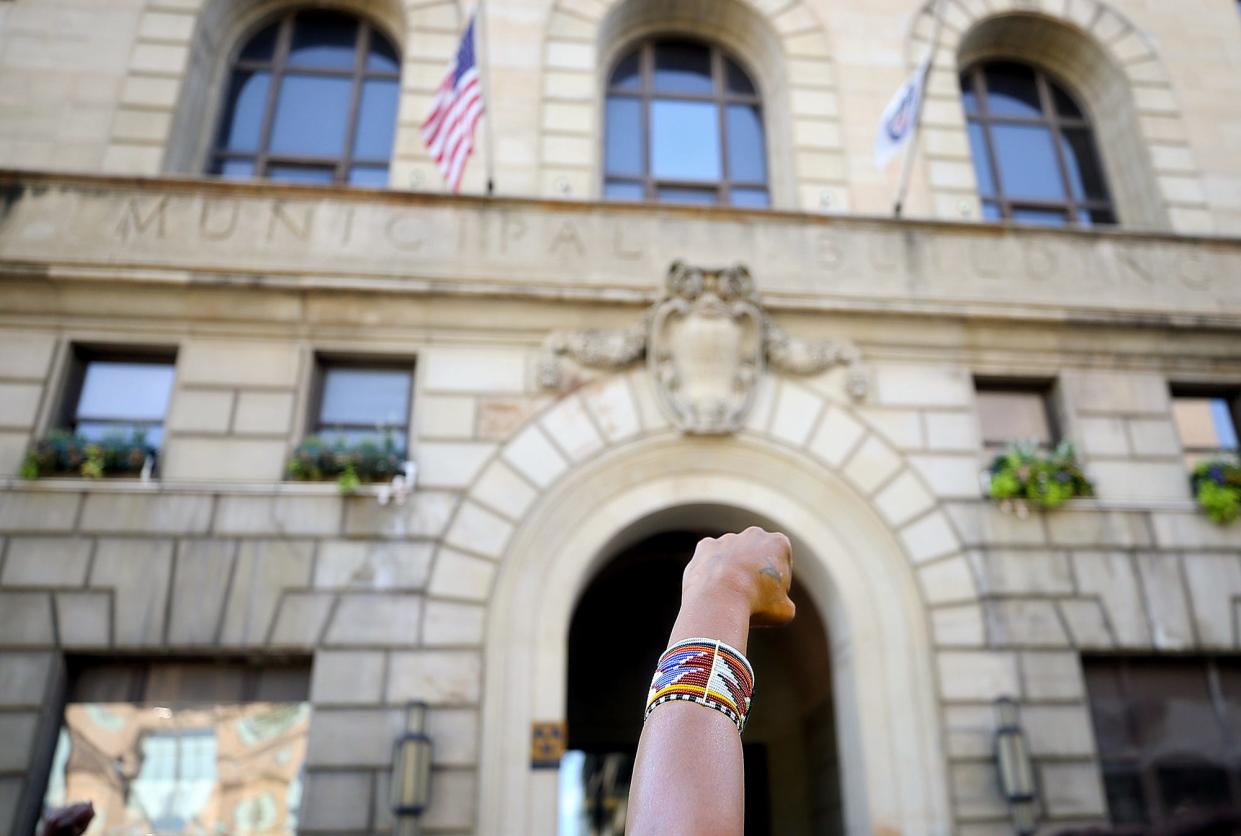Can Akron meet the moment and overhaul policing after Jayland Walker's death?

It will be years before we know how the Akron police shooting of Jayland Walker changes our city.
But the early returns are not encouraging at City Hall, which has been slow to tackle police reform since the society-changing police killing of George Floyd in Minnesota in 2020.
To be sure, there are key differences between Floyd and Walker. Floyd's neck was pinned under an officer's knee for nine agonizing minutes long after any threat had passed. Walker, a Black man who fled police in his car and on foot, was felled by a hail of 46 bullets from eight officers in mere seconds after allegedly firing one shot minutes earlier during the car chase.
Walker's behavior concerns many who can't fathom why he ran. It's a fair question that also overlooks the lack of trust Black Americans have in police from decades of incidents not recorded by smart phones or body cameras.
That fear is unlikely to go away without fundamental changes in how police in Akron and elsewhere operate and partner with their communities.
And that's the big picture conversation that's not really begun in Akron despite two commissions and proposals from members of City Council.
From George Floyd to Jayland Walker: Here's where police reform stands in Akron.
We acknowledge there's a fine line for Mayor Dan Horrigan and Police Chief Stephen Mylett to walk with gun violence claiming lives nearly every week. The public doesn't want crime to get worse by overly discouraging policing as has happened in some larger American cities.
Citizens also don't want another Jayland Walker.
That's why it's disappointing Akron has not taken the reasonable step to at least limit when police seek to stop suspects — let alone chase them — for equipment and other minor violations. Three young men also died in April fleeing a stop for failing to signal a turn, although officers never really got a chance to chase them.
The city's key announcement so far has been a pledge to create a citizen review board to oversee the police, an old concept that's not worked in Akron before. We welcome the initiative but a myriad of questions cloud how such a board may work effectively, if the city will make it part of Akron's charter and if the union representing police officers will cooperate.
Citizen Review Board: In wake of Jayland Walker shooting, how should residents police the police in Akron?
The power of the Fraternal Order of Police in these conversations is real and can't be ignored given its negotiated contract with the city. Residents also should share FOP concerns about officer safety, respect and retaining trained officers to keep the city as safe as possible.
The FOP also needs to walk its own fine line and ensure it engages as a partner for change. Digging in its heels against meaningful reform serves nobody, including its members. Declaring the shooting as likely to be justified and consistent with officer training doesn't help the community move forward.
In a recent Beacon Journal article, reporter Amanda Garrett examined how Cincinnati overcame police violence decades ago that sparked days of riots by revamping its entire approach to policing.
“What needs to happen in cities big and small, police departments need to return to community service over law enforcement,” said former Cincinnati Police Chief Jeffrey Blackwell. “When you get to know people, they start to trust you.”
Police reform: Could Cincinnati offer Akron a road map forward after Jayland Walker's death?
Meaningful change in Cincinnati took time but was driven forward by negotiations among citizens, the FOP, city leaders and the ACLU working to avoid a federal court order. Two resulting agreements changed how police use force and are trained while creating a citizens complaint authority among other changes.
“Part of putting the city back together again was not just telling the cops what they couldn’t do … it’s demoralizing,” said former Mayor John Cranley, who believes police reforms helped launch a Cincinnati renaissance.
What worked in Cincinnati may not work in Akron. And there's no guarantee a young Black man won't run from police there tonight.
But this moment in Akron's history demands more than what we've seen out of City Hall, City Council and the FOP so far.
Withholding the names of involved officers, roughly arresting protesters and holding private conversations and virtual council meetings won't build trust.
Or save the next Jayland.
This article originally appeared on Akron Beacon Journal: After Jayland Walker, can Akron really overhaul policing?

